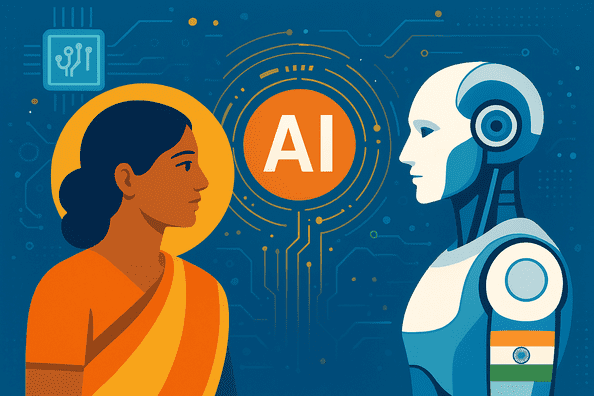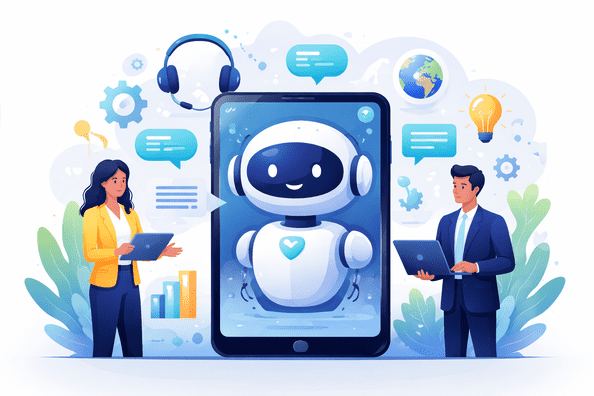The AI Impact Summit 2026 marks a watershed moment in India’s journey to make artificial intelligence accessible, equitable, and impactful for every citizen. Held in New Delhi against a backdrop of rapid technological transformation, the Summit brought together policymakers, technologists, educators, community leaders, and entrepreneurs to forge a shared vision—one that places human welfare and inclusivity at the heart of AI innovation. At its core, the Summit spotlighted three interlocking themes: policy and governance designed to protect citizens without stifling creativity; capacity building that empowers learners and communities with the skills and tools they need; and localized, ethical applications that address challenges unique to India, from agriculture and healthcare to education and financial inclusion.
A Unified Vision for Inclusive AI
India’s vast diversity—geographic, linguistic, cultural, and economic—demands a unifying framework that allows people from all walks of life to engage with AI in meaningful ways. Summit speakers outlined the National AI Framework currently under development, emphasizing principles of transparency, privacy, and participatory oversight. This framework is not merely a set of regulations but a living ecosystem in which startups can experiment in regulatory “sandboxes,” citizen juries can weigh in on ethical dilemmas, and an independent AI Ethics Board provides guidance on emerging risks. By weaving together public consultation, expert input, and iterative policy design, India aims to ensure that AI doesn’t replicate existing inequalities but instead becomes a tool for bridging divides.
Policy and Governance: Balancing Innovation with Accountability
India’s forthcoming National AI Framework strives to balance the need for rapid innovation with robust consumer protections. A new Data Governance Council will establish clear standards on data collection, consent, and sharing, informed by global best practices yet tailored to India’s context, where digital literacy varies widely. Complementing this council, the AI Ethics Board—comprised of technologists, ethicists, social scientists, and community representatives—will review high-stakes applications such as biometric identification and automated lending.
During the Summit, government officials shared an agricultural technology case study from Madhya Pradesh: a collaboration between state laboratories and a local startup used satellite imagery and soil sensors to generate personalized crop advice. By operating within a provisional sandbox, the project swiftly addressed farmers’ needs while rigorously safeguarding sensitive agronomic and personal data.
Building Capacity: From Classrooms to Community Hubs
With over 600 million Indians under the age of 25, education is central to democratizing AI. Summit organizers revealed a nationwide initiative to integrate AI fundamentals into school curricula beginning in Grade 8. Developed in partnership with premier institutions such as the Indian Institutes of Technology (IITs) and the Indian Institute of Science (IISc), the curriculum emphasizes computational thinking, data ethics, and hands-on projects using regionally relevant datasets. To support teachers, the government is rolling out intensive bootcamps and establishing a network of AI Fellows—educators and researchers funded through a public–private consortium who will mentor student teams on capstone projects.
Outside traditional classrooms, the Summit highlighted plans for 100 Community AI Hubs across the country. These hubs, ranging from tele center retrofits in tribal districts to mobile AI labs housed in vans, will offer access to high-speed internet, localized language interfaces, and mentorship programs that enable rural entrepreneurs and civic activists to prototype AI solutions for issues like water management and public health surveillance.
Embedding Ethical Practices in AI Development
Recognizing that technology alone cannot guarantee fairness, the Summit devoted entire sessions to ethical AI in practice. Presenters described routine “bias audits” integrated into the model development lifecycle, in which datasets and algorithms undergo third-party review for discriminatory outcomes. To foster transparency, many developers commit to publishing “model fact sheets” that outline a system’s training data, known performance metrics, and known limitations—much like the nutritional labels on food products. Perhaps most strikingly, India is pioneering “citizen jury” panels that convene community members to deliberate on contentious applications such as facial recognition in public spaces. These juries help shape guidelines that reflect local values and concerns, reinforcing social trust in AI systems.
Grassroots Innovation: Hackathons, Startups, and Partnerships
The Summit’s innovation showcase featured more than 200 startups and university teams tackling India’s most pressing challenges. In Bengaluru, a venture demonstrated an offline-capable diagnostic app that listens to lung sounds via smartphone to detect respiratory conditions, supporting health workers in regions with limited connectivity. Elsewhere, student engineers from Delhi’s campuses showcased drone-based damage-assessment tools designed for rapid response after floods and cyclones.
Behind these success stories is a new ₹500 crore collaborative fund, co-financed by government agencies, philanthropic trusts like Tata Trusts, and multinational tech firms, which de-risks early investments in socially oriented AI ventures. By bridging the gap between proof of concept and scale, this fund underscores how public–private partnerships can nurture inventions capable of transforming communities.
Embedding Ethical Practices in AI Development
Recognizing that technology alone cannot guarantee fairness, the Summit devoted entire sessions to ethical AI in practice. Presenters described routine bias audits integrated into the model development lifecycle, in which datasets and algorithms undergo third-party review for discriminatory outcomes. To foster transparency, many developers commit to publishing “model fact sheets” that outline a system’s training data, known performance metrics, and known limitations—much like the nutritional labels on food products.
Perhaps most strikingly, India is pioneering “citizen jury” panels that convene community members to deliberate on contentious applications such as facial recognition in public spaces. These juries help shape guidelines that reflect local values and concerns, reinforcing social trust in AI systems. Key ethical mechanisms highlighted at the Summit include:
- Regular third-party bias audits to uncover and mitigate hidden biases in datasets and algorithms
- Transparent model fact sheets detailing data sources, training methods, and performance caveats
- Citizen juries convened at local levels to provide community perspectives on high-impact AI deployments
- Mandatory impact assessments for any AI application involving sensitive personal data or high-stakes decision-making
These measures illustrate India’s commitment to building AI systems that are not only powerful, but also principled and accountable—ensuring technology serves society rather than undermines it.
India’s Role on the Global AI Stage
While focusing on domestic priorities, India also positioned itself as a collaborative partner in global AI research. Summit delegates announced plans to release open-source language and vision models optimized for low-resource settings, enabling researchers worldwide to adapt advanced tools without prohibitive computing costs. Additionally, a federated “data commons” will invite international contributions of anonymized datasets for joint studies on climate resilience, epidemiology, and urban planning.
Academic exchange programs will facilitate reciprocal fellowships, allowing Indian scholars to pursue sabbaticals at leading overseas labs and international researchers to immerse themselves in India’s unique AI ecosystem. These efforts signal India’s transition from technology consumer to co-creator, shaping research agendas that address shared global challenges.
Conclusion: Charting the Road Ahead
The AI Impact Summit 2026 crystallized India’s ambitious yet pragmatic roadmap for democratizing AI. By harmonizing policy innovation with ethical safeguards, investing in human capital, and empowering grassroots problem-solvers, India is forging a path toward an AI-enabled future that uplifts every community. As pilot projects mature and partnerships deepen, the real test will be sustaining momentum—ensuring that AI continues to serve as a lever for inclusivity rather than a source of division.
The Summit’s legacy will depend on translating ambitious declarations into tangible outcomes: healthier harvests, more resilient cities, and new opportunities for millions of Indians. With collaborative determination and ethical foresight, India’s vision for AI democracy stands poised to inspire other nations and chart a new course for technology’s role in society.



